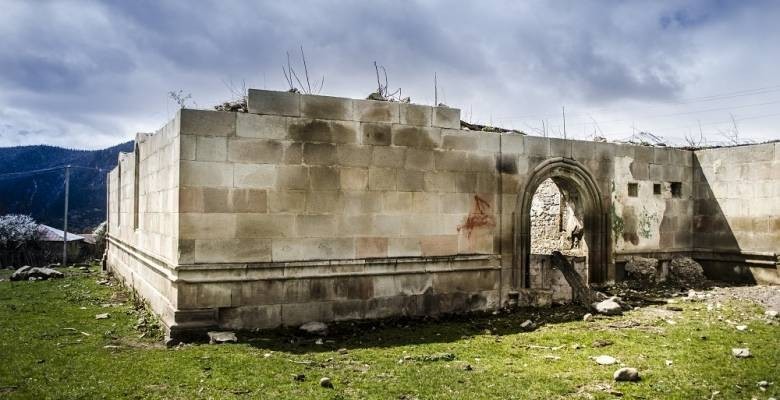საერთო ცხელი ხაზი +995 577 07 05 63


On November 16, 2021, the European Court of Human Rights issued a judgment on the case of Mikeladze and Others v. Georgia, relating to the circumstances of arrest and mistreatment of local Muslims by police in the village of Mokhe in October 2014. According to the court’s judgment, the State violated Articles 3 and 14 of the European Convention in this case, which concerns the prohibition of torture, inhuman and degrading treatment, and discrimination. The interests of the victims, in this case, were defended before the European Court as well as at the local level by Social Justice Center.
Social Justice Center applied to the European Court of Human Rights in 2016 on the Mokhe case. The case concerned the facts of excessive use of force and ill-treatment by the police against 4 Muslims participating in a peaceful gathering in the village of Mokhe (Adigheni Municipality), which was not subject to a proper and real investigation for a long period of time. Social Justice Center requested the Court to find a violation of Article 3 (prohibition of torture, inhuman and degrading treatment), Article 8 (right to inviolability of private and family life), Article 14 (prohibition of discrimination), and Article 13 (right to effective legal remedies) against the applicants.
As it is known to the public, on October 22, 2014, local Muslims were protesting the dismantling of the historic mosque in the village of Mokhe. Police confronted a spontaneously gathered Muslim community, arrested 14 protesters, and used force against some of them. The four detainees stated that the police had committed particularly severe physical and psychological violence against them. In addition to being beaten while being detained at the place of gathering, the above-mentioned persons became victims of psychological and degrading treatment at the police station, and one of them was severely physically abused. Also, at all stages of the police action, the facts of hate speech on religious grounds by the employees of the Ministry of Interior Affairs were recorded.
The court found that the applicants' arguments concerned not only the process of the arrest itself but also the process of being in the police station when they were physically and psychologically abused by the police, including religiously motivated insults, as well as brutal physical violence against the first applicant, that created an intimidating environment for the other applicants as well. The Court clarified that Article 3 of the Convention concerns not only physical but also psychological suffering and found a substantial violation of Article 3 of the Convention in the case of the first applicant, Teimuraz Mikeladze. The court found concerning T. Mikeladze, that the state could not explain the source of the physical injuries that appeared in the presented evidence and could not prove that the police had not used force against him. Accordingly, the Court also found a substantive (material) violation of Article 3 in respect of the first applicant. However, the Court did not find sufficient evidence to establish discrimination against the first applicant even in the case of a violation of the substantive part of Article 3.
The court also clarified that the authorities had not investigated the allegations of ill-treatment and inhuman treatment of the applicants based on discriminatory motives. In assessing the evidence, the Court finds that the applicants' allegations constitute a cumulative violation of the procedural part of Article 3 of the Convention (the obligation to conduct an effective investigation) in conjunction with the violation of the article on the prohibition of discrimination.
Based on the same facts, the applicants complained that there had been a violation of Articles 8, 11, and 13 of the Convention, although the Court no longer considered it necessary to adjudicate the same factual circumstances concerning these Articles as it found it sufficient to answer the relevant legal questions under Article 3.
The court imposed the State to pay monetary compensation to all four applicants.
The decision on the Mokhe case is the first case related to the practice of restricting the rights of the Muslim community in recent years, and we believe that it, as well as the enforcement of the decision by the Committee of Ministers, can have a significant impact on the legal status of the Muslim community and other religious groups.
The website accessibility instruction